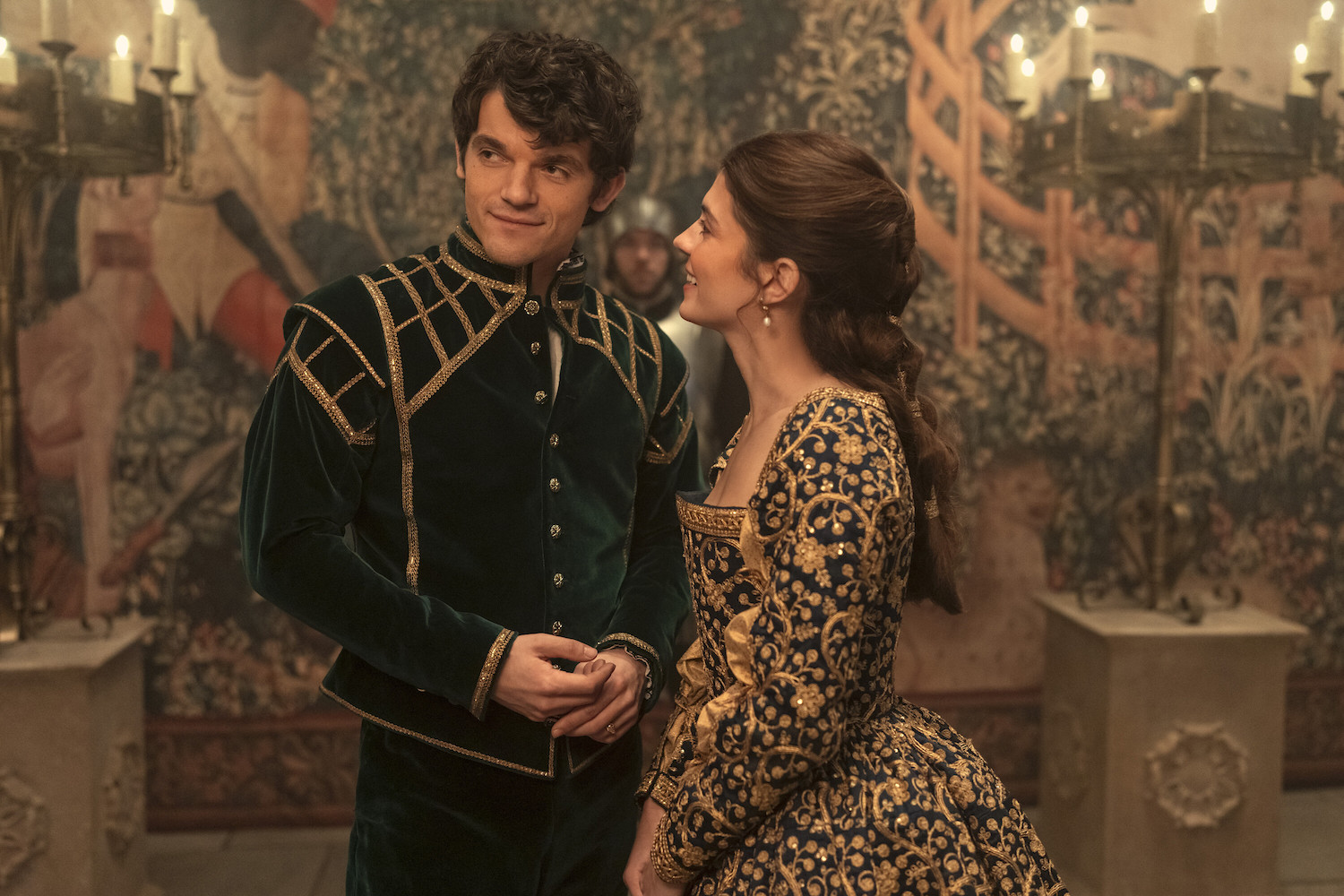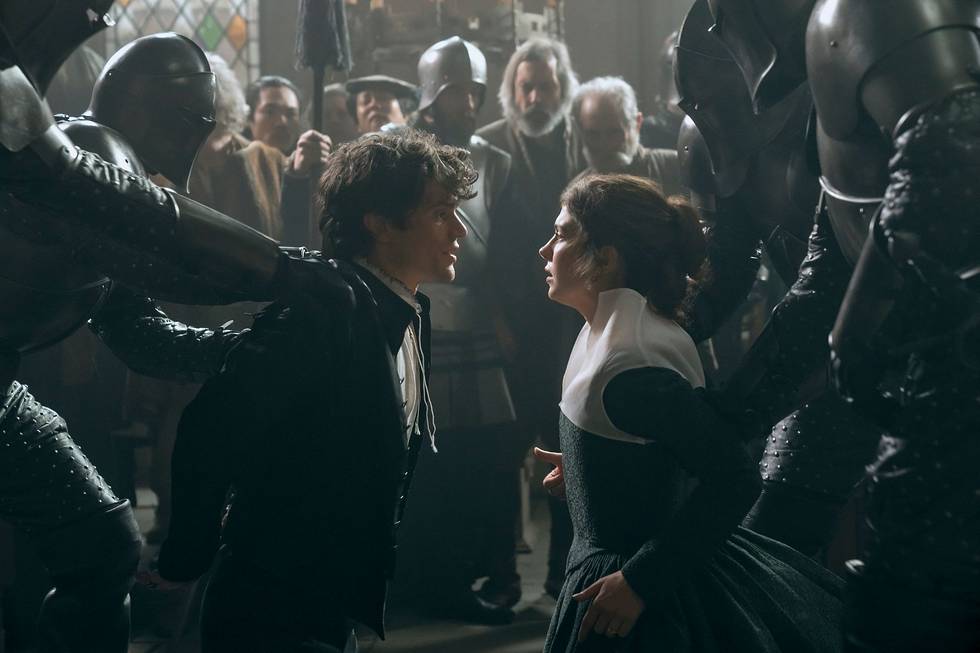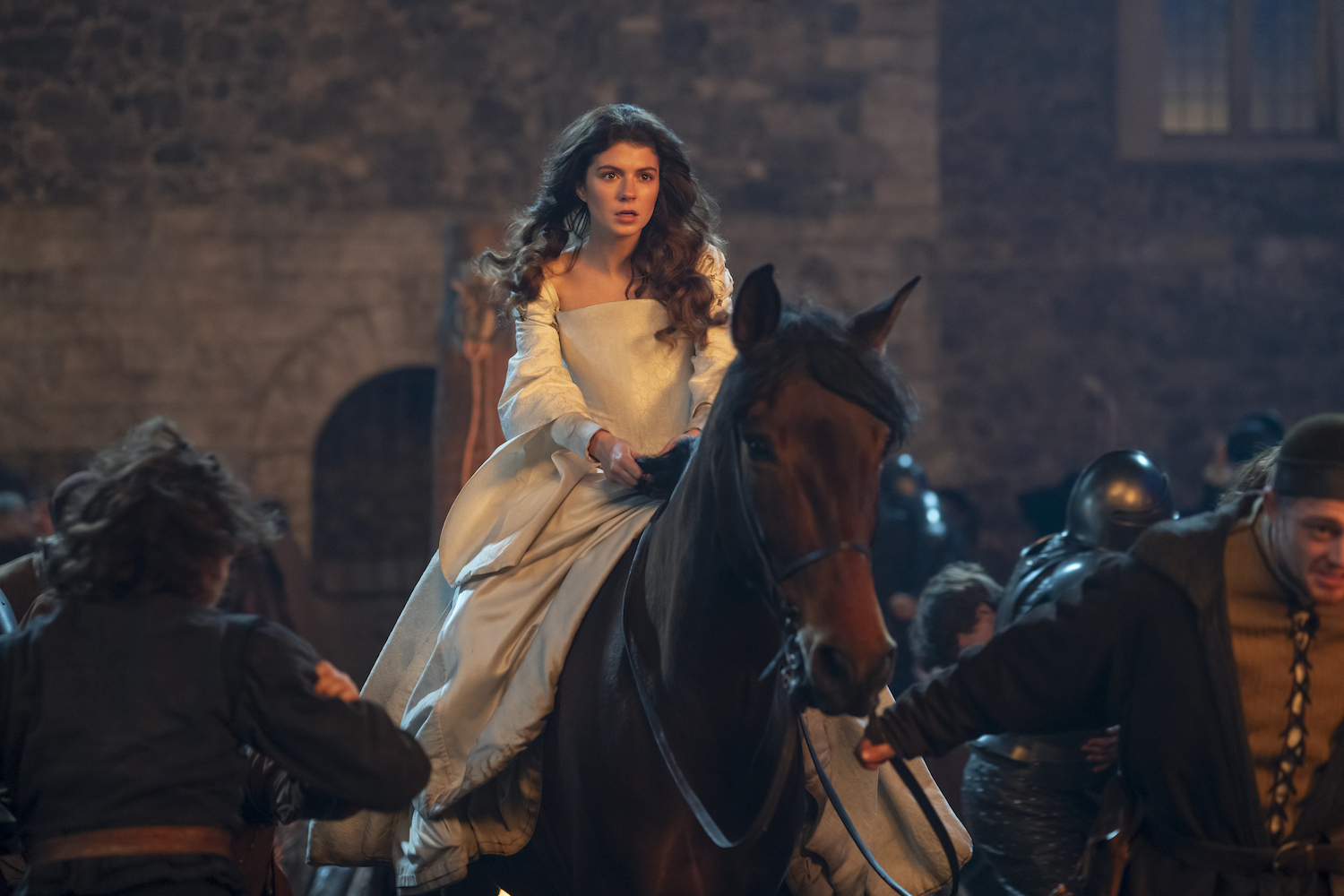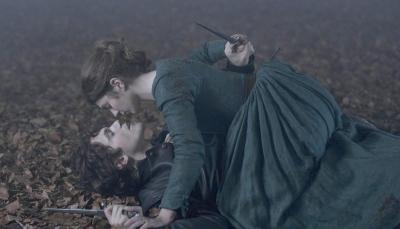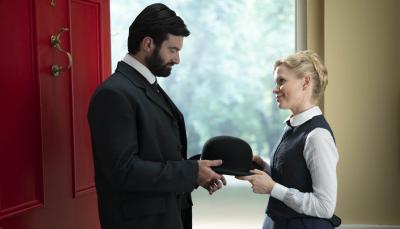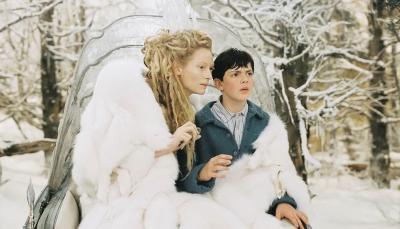Why 'My Lady Jane's' Abrupt Cancelation Is So Heartbreaking
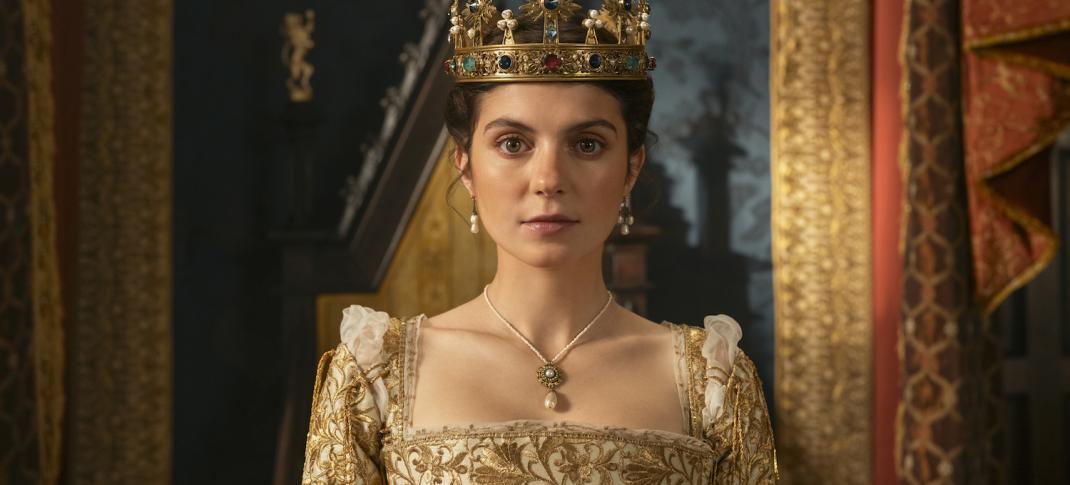
Emily Bader in "My Lady Jane"
(Photo: Prime Video)
As almost every viewer knows by now, the streaming world is a cruel mistress. From Netflix to Prime Video to Disney+, there's a veritable graveyard of promising original series gone too soon, ditched before they could find an audience. The past year or so has been ruthless in this regard, with shows from every genre getting unceremoniously axed after a single season. From fantasy (Renegade Nell) to drama (The Girls on the Bus), it seems like almost nothing is safe, not even uber-recognizable science fiction franchises (The Acolyte). No wonder viewers are reluctant to give new series a chance when chances are they'll get axed in less time than it takes Taylor Swift to play an Eras Tour show.
But sometimes, a cancellation is so shocking, the loss of potential so egregious, that it's impossible not to feel like something precious has been stolen from you. Such is the case with My Lady Jane, axed by Prime Video so quickly that all its episodes wouldn't have dropped yet had it been airing weekly.
The show, a historical fantasy reimagining of the reign of Lady Jane Grey, England's infamous Nine Days Queen, is absolutely bonkers in all the best possible ways. A wildly historically inaccurate, infectiously entertaining magical romp featuring everything from animal shapeshifters to a sly, foul-mouthed, fourth-wall-breaking narrator, My Lady Jane is one of the best things that hit screens — streaming or otherwise — this year, and the larger television landscape is a darker place without it.
Period dramas have made great strides in recent years in telling more inclusive and nontraditional stories, from Hulu's The Great and Netflix's Bridgerton to Starz's The Serpent Queen. But My Lady Jane is on another level, gleefully deviating from the history it's meant to depict and the entire concept of what a show like this is supposed to be and do. While the show loosely follows some aspects of history — its Lady Jane Grey does become queen following the death of King Edward VI, is subsequently deposed by his sister Mary Tudor, and convicted of treason — it plays fast and loose with literally everything else.
It recasts the central political schism of the sixteenth century not as a struggle between Catholics and Protestants but between two different classes of citizens: Eðians (EE-thee-uns) and Verities. The result is a totally unique take on the material. Eðians are shapeshifters, humans capable of transforming into a specific animal form, ranging from birds to mice to bears. Verities are regular, non-magical folk who view their magically inclined countrymen suspiciously and have passed Division Laws that force them to live on the outskirts of both society and power.
My Lady Jane is not particularly subtle about the ways Eðians are meant to represent today's various marginalized groups, but its diverse cast and full-throated insistence that everyone deserves dignity, respect, and equal treatment under the law are incredibly welcome in our current political moment. However, the biggest reason to love My Lady Jane is how unabashedly romantic it is.
The series turns Jane's real arranged marriage (which almost certainly wasn't a happy one) into a sweeping, genuine love story. In this version of events, the pair ultimately bond over trying to find a cure for Guilford's secret Eðian curse — he transforms into a horse by day — and each slowly begins to realize that their crackling chemistry masks genuine affection and love. The slow-burn romance between them is the emotional linchpin around which the rest of the series turns, not only deeply satisfying to watch but a key driver of its larger narrative aims.
Through Guilford, Jane discovers how ignorant she is regarding Eðianism and the truth about the appalling way they are regularly treated. As she wrestles with questions about who the monarchy is meant to serve, she fights back against the idea that Eðians are somehow second-class citizens who should be feared or distrusted. Jane's faith in him ultimately helps Guilford accept himself and that his shapeshifting ability is just a natural extension of who he is, not something to be feared or hated.
Nothing about My Lady Jane works without the love story at its center. Stars Emily Bader and Edward Bluemel have a sizzling chemistry with one another, whether Jane and Guilford are flirting or fighting (occasionally with literal daggers). Their enemies-to-lovers relationship is perfectly plotted, allowing them to grow and overcome obstacles together — Guilford's secret, Jane's sudden ascension to the crown — rather than setting them at constant odds. There's no love triangle-type distraction or indication that the pair are anything other than endgame, meaning the show has plenty of time to delve into the emotional dynamics of their relationship in a way that too many series' fast-forward through.
Despite Bridgerton's global success, romance is still widely mocked. Series explicitly focused on love stories are treated as lesser, unserious, or not worth your time.
As My Lady Jane would say: [Expletive] that. Here, love is presented as heroic, giving Jane the strength to rescue her husband and the confidence to break his curse. They survive because being together has allowed them to become the best versions of themselves, and it's a swoon-worthy moment for a couple that spent the preceding episodes doing the work to earn it. Shows like My Lady Jane are so rare in our current television landscape. Openly adventurous and joyful, full of clever storytelling and a swing-for-the-fences attitude toward everything from history to love, it's precisely the wildly original programming we should be getting more of as viewers, not less.
The first (and now only) season ends on a positive note, with Jane and Guilford fleeing the execution that ended the real Jane Grey's life, acknowledging their love for each other and preparing to start a new life together. But the question of England remains open — if the show continued, would Jane fight for those Eðians still oppressed by the crown she left behind? Would she have challenged Mary for the throne or supported Mary's younger Eðian sister, Elizabeth? We'll never know, and that sucks.
All eight episodes of My Lady Jane are currently streaming on Prime Video.

